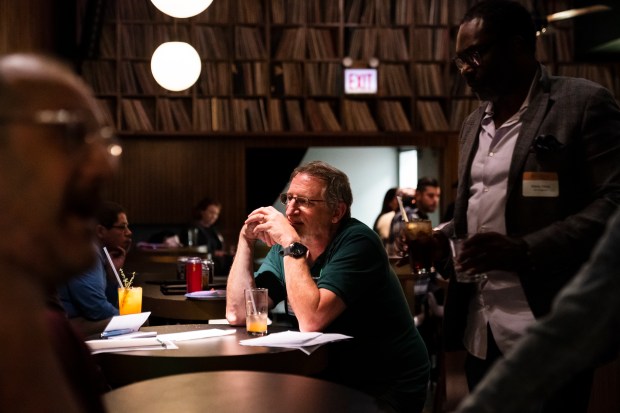Illinois has the most diverse cannabis industry in the United States, according to a new study — but new business owners say they need a lot more help to get started.
The state-commissioned disparity study found that 60% of all recreational and medical cannabis licenses went to minority- or women-owned businesses. That includes 27% of owners who are Black, 16% women, 5% Latino, 3% Asian and 14% a mixed coalition. Other states reported minority and female ownership of 37% of less.
The overall diversity in Illinois is driven mostly by newer recreational pot licenses, and contrasts with the state’s medical cannabis market, authorized in 2013, which the study reported is 21% women- or minority-owned. Many of those first medical growers — like Cresco Labs, PharmaCann and Green Thumb Industries — were started largely by relatively wealthy white males who could meet the law’s strict financial requirements. Those companies have grown into some of the largest cannabis operators in the nation.
Part of the rationale for legalizing cannabis was to correct harms done to Black people, who were disproportionately prosecuted for marijuana-related offenses. Illinois law does not give preference for cannabis licenses based on race or gender, but does give advantages to social equity applicants, generally defined as people with a low-level weed offense or who come from poor neighborhoods.
“We’re incredibly proud of our emerging cannabis industry, and we’re fully committed to making this an industry where people most affected by the War on Drugs can start their own business and thrive,” Gov. J.B. Pritzker said in a news release.
Scott Redman, founder of the Illinois Independent Craft Growers Association, said that though the state has awarded licenses to minorities, very few of them have been able to open.
Only 16 out of 87 craft grow licenses were operational as of June, by the association’s count. The COVID-19 pandemic, inflation and high interest rates, litigation, lack of action by lawmakers, and unregulated competition from unlicensed intoxicating hemp products have ruined many efforts to open, Redman said.
As a result, many craft growers facing an Aug. 1 deadline to begin operating say they need extensions from the state.
“If nothing else, this study also shows the extreme need to provide some forms of financial support to (social equity) companies in order to get off the ground,” he said.
The state Department of Commerce and Economic Opportunity has provided almost $22 million in forgivable loans to social equity licensees, with 84% going to minority- and women-owned businesses. Cook County is offering $3.6 million in grants, though both programs have stopped taking applications.
Statewide, consumers spend $2 billion on cannabis each year, generating nearly $500 million in tax revenue.
Currently, 218 retail stores are licensed. Another 55 social equity licenses are on the way.
The consultant that conducted the study, the Nerevu Group, recommends strengthening social equity by increasing access to capital, unifying state policies and simplifying administration, and expanding economic opportunities for new businesses.



